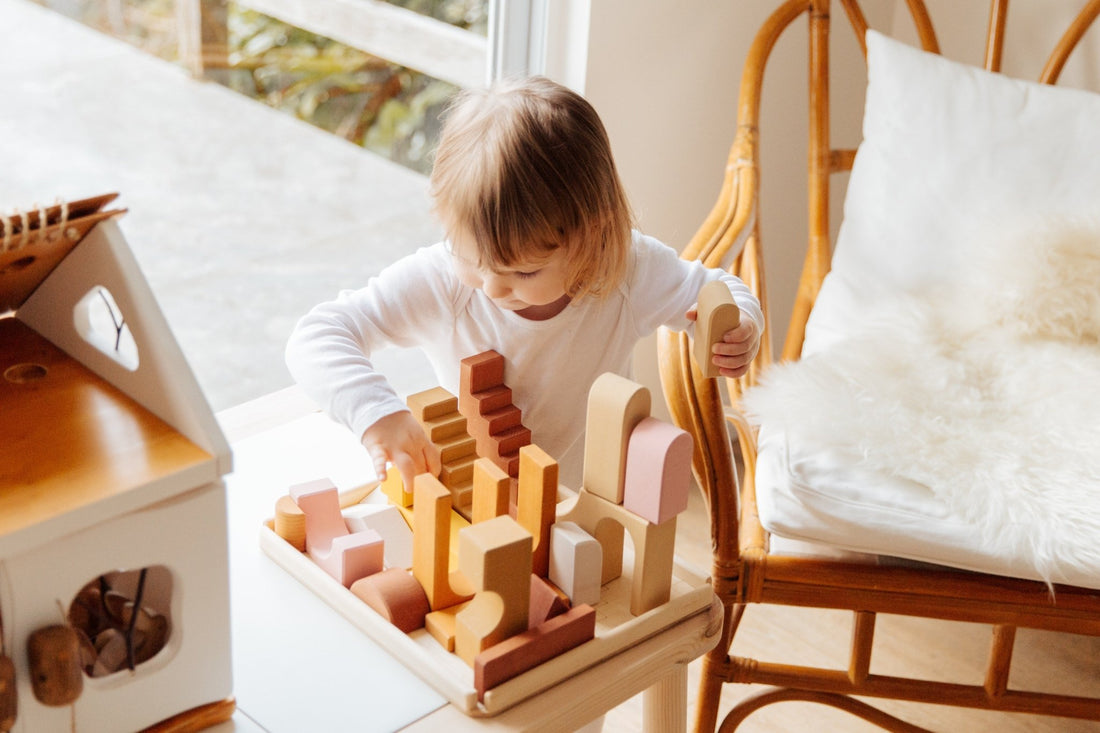The first year of a baby's life is a period of extraordinary growth and development. Every month brings new milestones and accomplishments as they learn to navigate the world around them. As a parent or caregiver, understanding what to expect during each stage of your baby's development can help you provide the necessary support and create a nurturing environment. Let's talk about these key developmental milestones and learn some practical tips for preparing for each new stage during the first year of your baby's life.
Months 0-3: Building Foundations
During the first three months, babies are primarily focused on building essential physical and sensory foundations. At this stage, they develop basic reflexes, begin to track objects with their eyes, and make early attempts at communication through cooing and crying.
What to Expect:
- Improved head control: Babies will start to lift their heads while lying on their stomachs.
- Hand-eye coordination: They will start to reach for and grasp objects, though their grip may still be weak.
- Social smiles: Babies will begin to respond to familiar faces with smiles.
What Parents Can Do:
- Encourage tummy time: Tummy time helps babies strengthen their neck and shoulder muscles, aiding in the development of head control.
- Engage in sensory play: Offer toys with contrasting colors
Months 3-6: Exploring the World
During this stage, your baby's physical abilities will significantly improve, leading to increased exploration and interaction with their environment. They will become more curious about the world around them and start to show signs of mobility.
What to Expect:
- Rolling over: Around 4-5 months, babies may start rolling over from their tummy to their back and vice versa.
- Sitting with support: By 6 months, many babies can sit upright with support.
- Babbling: They will begin to experiment with different sounds, babbling to communicate.
- Hand control: They will have better control of their hands, making it easier to reach for objects and bring them to their mouths.
What Parents Can Do:
- Create a safe play environment: As your baby becomes more mobile, ensure the play area is safe and free from any hazards. Try childproof vent covers to keep them from pulling up the dirty vent covers and putting their mouth on it.
- Encourage communication: Respond to your baby's coos and babbles, which will help them develop their language skills.
- Introduce age-appropriate toys: Offer toys that encourage exploration and sensory development, such as soft books, rattles, and textured objects.
Months 6-9: Crawling and Independence
During this stage, babies become more mobile and assert their independence. They will be eager to explore their surroundings and become more communicative with their gestures and facial expressions.
What to Expect:
- Crawling: Most babies will start crawling on their hands and knees or may use a "commando crawl" (belly crawling) method.
- Object permanence: Babies will understand that objects continue to exist even when they are out of sight.
- Pincer grasp: They will develop the ability to pick up small objects between their thumb and forefinger.
- Stranger anxiety: Babies may become wary of unfamiliar faces and may show signs of separation anxiety.
What Parents Can Do:
- Babyproof your home: With increased mobility, babyproofing becomes even more crucial. Secure furniture and cabinets, cover electrical outlets and try childproof vent covers to keep the vent covers in the floor and protect small hands from getting into big trouble.
- Offer support during transitions: If your baby shows signs of separation anxiety, reassure them when you need to leave their sight and return promptly.
- Encourage independent play: Allow your baby to explore and play independently while keeping a watchful eye from a distance.
Months 9-12: Motor Skills and First Words
As your baby approaches the end of their first year, their physical development will continue to advance. They will gain more control over their movements and may take their first steps.
What to Expect:
- Pulling up and cruising: Babies may pull themselves up to stand and cruise along furniture.
- First words: Around 9-12 months, some babies may say their first words, such as "mama" or "dada."
- Improved dexterity: They will become more skilled with their hands and enjoy activities like banging objects together or stacking blocks.
- Understanding simple instructions: Babies will begin to comprehend simple instructions and respond with gestures or actions.
What Parents Can Do:
- Provide a language-rich environment: Talk, sing, and read to your baby regularly to encourage language development.
- Support standing and walking: Provide stable furniture or walking toys to help your baby practice standing and eventually taking those first steps.
- Engage in interactive play: Encourage your baby to imitate your actions, such as clapping hands or waving goodbye.
- Keep up the childproofing! Toddlers are very curious and get into everything! Take a look at our top 10 childproofing products in this blog - including childproof vent covers!
The first year of a baby's life is a wonderful and exciting time. By understanding what to expect during each stage and offering the appropriate support and encouragement, parents and caregivers can foster a nurturing environment that allows baby to thrive and reach their developmental milestones. Remember that every baby is unique, and while these general guidelines can be helpful, it's essential to celebrate your baby's progress and provide them with all the love and care throughout their journey of discovery, learning, and growing.


1 comment
Should I be concerned if my baby don’t talk much or mumble sounds at 8 months old?